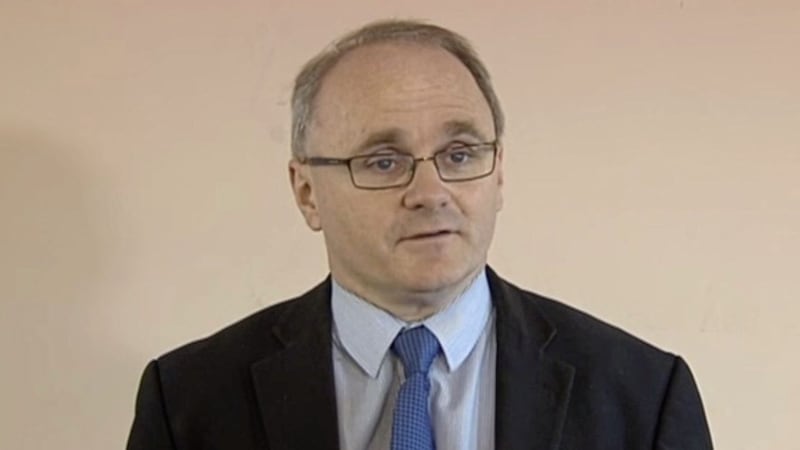Barry McElduff’s resignation as MP for West Tyrone was the correct response to his Twitter video which caused so much hurt and distress to the families of those killed at Kingsmill.
In his resignation statement he said he again offered his “profound apology to those families and to the wider victim’s community”.
He went on to say: “I cannot undo the pain caused but I know that my continuing role as MP for West Tyrone will compound that sense of hurt and impede any reconciliation process”.
The resignation, the tone and content of Barry’s accompanying statement reflect the man and activist I have known for the best part of forty years.
The accusations that he wilfully and wantonly set out to offend runs totally contrary to my experience of Barry and to his dedication and loyalty to the struggle for a united Ireland and his diligence and care for the people of Tyrone, irrespective of their political or religious background.
Barry intimately knows about the grief caused by the loss of a loved one in the conflict. His brother-in-law Paddy Kelly was killed with seven other IRA activists and a civilian in an SAS ambush at Loughgall.
He has attended many funerals of friends and neighbours who lost their lives in the conflict.
To me it was inconceivable that Barry, in a cold and premeditated way, would make a video and joke of the Kingsmill killings.
In his resignation statement he repeated the point he made from the outset that: “Had I been conscious of the connection to the terrible atrocity at Kingsmill I would certainly not have posted that tweet. I genuinely did not make that connection, not for a second did I make that connection in my mind”.
I know it is very difficult for the Kingsmill families and indeed many other families who lost loved ones to believe that, and that is entirely understandable and acceptable for this deeply hurt community.
But Barry’s resignation will also be seen as acknowledgement of the damage he caused and as an expression of his deep regret for the mistake he made, however unwittingly.
Barry’s resignation restores my confidence in him and I am sure it does the same for many republicans who wrestled with their conscience over how to handle this shocking situation.
But there is a wider issue which existed before the video controversy and which urgently needs addressed. And that is the issue of legacy and specifically resolving the past in terms of the conflict in a way that meets the needs of relatives who lost loved ones and those who were injured in the conflict.
Even though all the parties and the Irish and British governments agreed how best to deal with the legacy of the past, as set out in the Stormont House Agreement (SHA), legacy remains a contentious and divisive issue.
It does not need to be but it is. And the primary reason for that is the failure by the British government to accept and implement what it agreed to in the SHA.
In theory legacy should be a stand-alone issue which requires a different approach to the way for example the parties approach the achievement of a ‘rights-based’ society or a border poll for unity or any of the conflict-related issues at the heart of the stalled negotiations.
It probably is too much to expect that arising out of the controversy of the Kingsmill video a new approach would be taken to resolving the legacy issue particularly by the British government.
This week republicans have been reminded of their past and the awful human cost when a society is war-torn.
But next week it could be the British government and the unionists seeking not to be reminded of the grievous hurt they caused.
It will continue like this until legacy is addressed once and for all.
Yes, power-sharing can be a potent symbol of ongoing reconciliation.
But only if power is being shared sincerely and equitably and not with the objective of ‘running rings around’ your partners.
The institutions can only be restored on the right basis – and if not, there will be no Stormont, no DUP ministers and no executive.
That has not changed, nor has republican resolve lessened.








